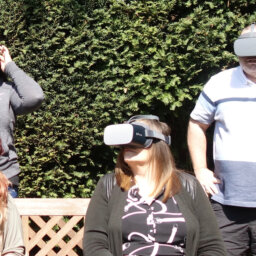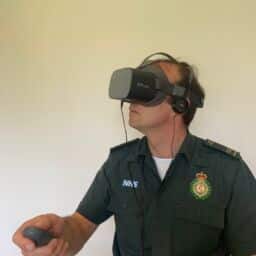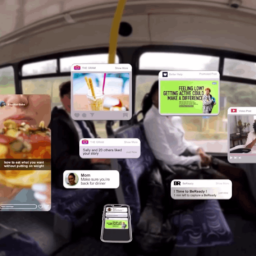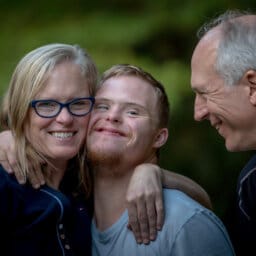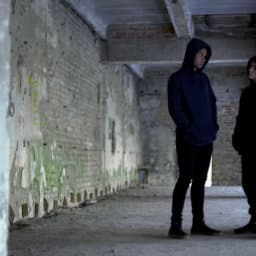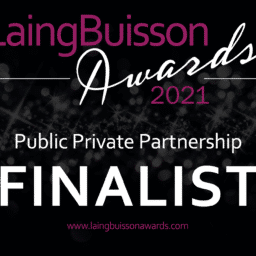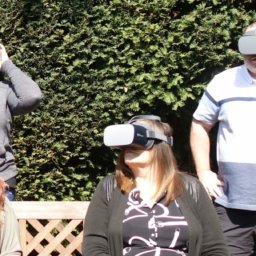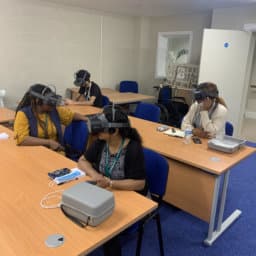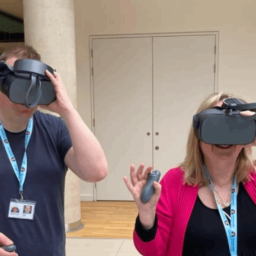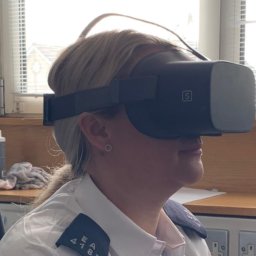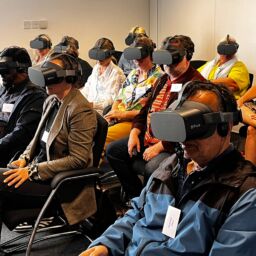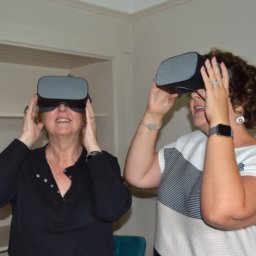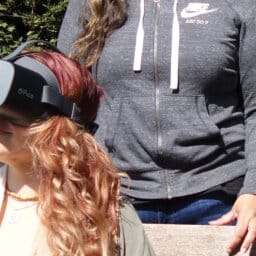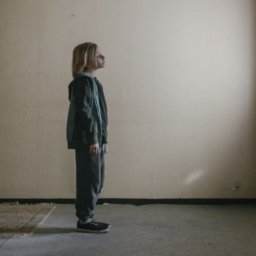The team at Antser were thrilled to see their partnership with the London tri-borough was recently “Highly Commended” at the prestigious MJ Awards.
Antser and the tri-borough were given the title out of six finalists in the “Innovation in Children’s and Adults’ Services” category.
The winners were announced during a formal ceremony at the Park Plaza Westminster Bridge on Friday, 23rd June.
Serena Hadi, Head of Operations and Practice at Antser / Cornerstone VR, said: “We are delighted to have our project recognised at The MJ Awards. Our VR-enabled behaviour-change programme aims to increase empathy and shift attitudes to support positive change. VR has been revolutionary in social care and we are glad to see it get the recognition it deserves.”
Back in 2021, Antser partnered with three London boroughs – Redbridge, Enfield and Waltham Forest – to use virtual reality with young people identified as being vulnerable to exploitation and at a significant risk of extra-familial harm (EFH) and their parents, carers and the professionals working with them.
Antser / Cornerstone VR has been used across public and private sectors to target several topical issues including child sexual exploitation (CSE), domestic abuse (DA), gangs and knife crime.
Seven months into the 12-month project, Antser had trained 40 practitioners across the three boroughs, assisting the teams to use VR as a tool to help bring to life the perspectives of children and young people at risk of exploitation through immersive storytelling.
The aim of the project has been twofold – firstly to increase young people’s awareness of harmful behaviour and exploitative relationships and to open up conversations with young people about their risk of EFH.
The second aim of the project helps to support, as well as educate, parents and professionals working with children at risk to better understand and empathise with the issues facing young people and experience them from their point of view.
Between January and March 2022, Antser / Cornerstone VR was used 52 times in interventions conducted across the three London boroughs directly with vulnerable adolescents or their parents – 34 times with children at risk of EFH and 18 times with parents.
The responses showed that the VR programme had a positive impact on practitioners in terms of improving their own understanding of exploitation.
All feedback from children and young people who have been exposed to VR has also been positive and the sessions have enabled them to recognise their vulnerability and consciously think about their behaviour in the community.
For more information about Antser / Cornerstone VR, click here.


